The Cultural Triangle is one of the most popular tourist trails in Sri Lanka. I am a bit of a temple junkie, having done so many throughout India over the past 18 months, so I couldn’t resist seeing the famous sites of Sri Lanka. What I didn’t realise was just how much Buddhist history was in this country. So much so that at times it felt overwhelming, whilst at others I simply felt a little “Buddha’d out”.
Our tour of the Cultural Triangle started in Dambulla, where we headed up the steep hill from the Golden Temple (not to be confused with the one in Amritsar) to the Royal Rock Temple, which is a series of five caves from the 1st century BC. The caves were magnificent and reminiscent of those I had seen at Ajanta. Some had huge reclining Buddhas, looking peaceful with magnificent paintings on the feet.
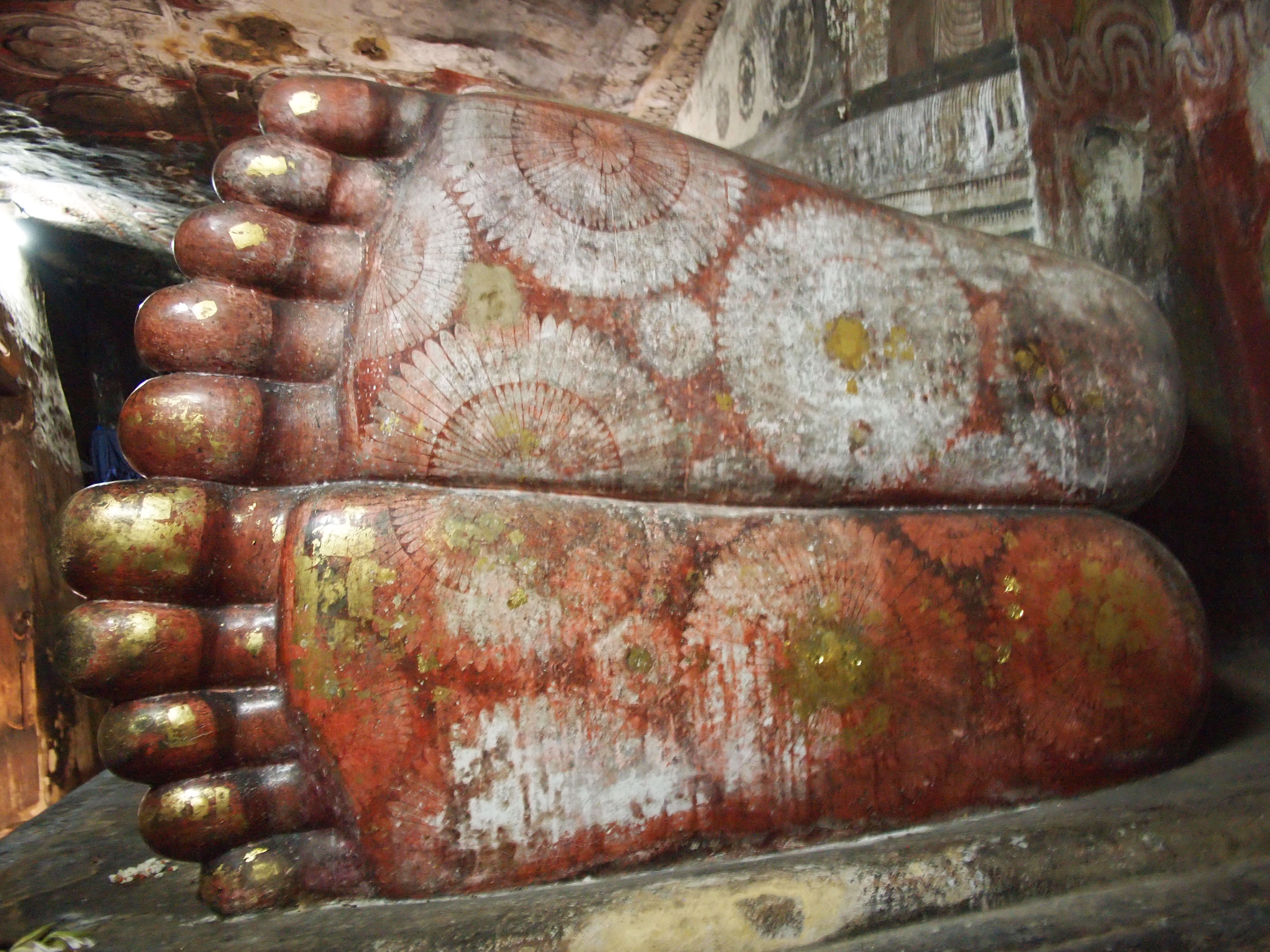
The size of the caves was amazing, and all contained beautifully preserved carvings. It is a spectacular site to visit.
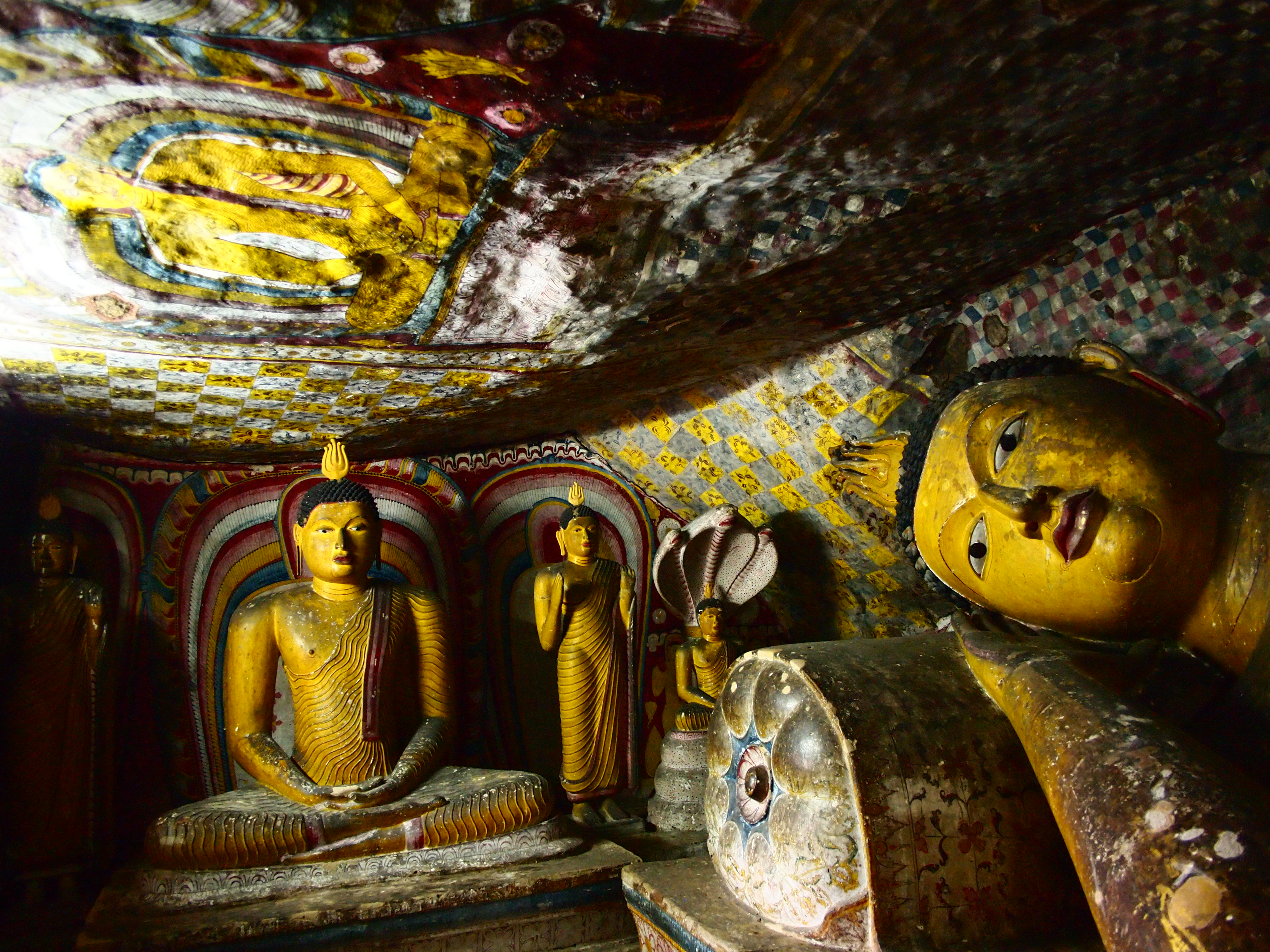
The next day the weather was looking a little temperamental, so we decided to visit the Ancient City of Polonnaruwa rather than attempt to climb Sigiriya. Nearly 1,000 years ago Polonnaruwa was the royal capital. The old town has plenty to see, and took us the better part of the day to ensure we did it justice. It is still like a town, and we were able to wander through the ruins, and stumbling across some fabulous buildings quite unexpectedly, like this one:
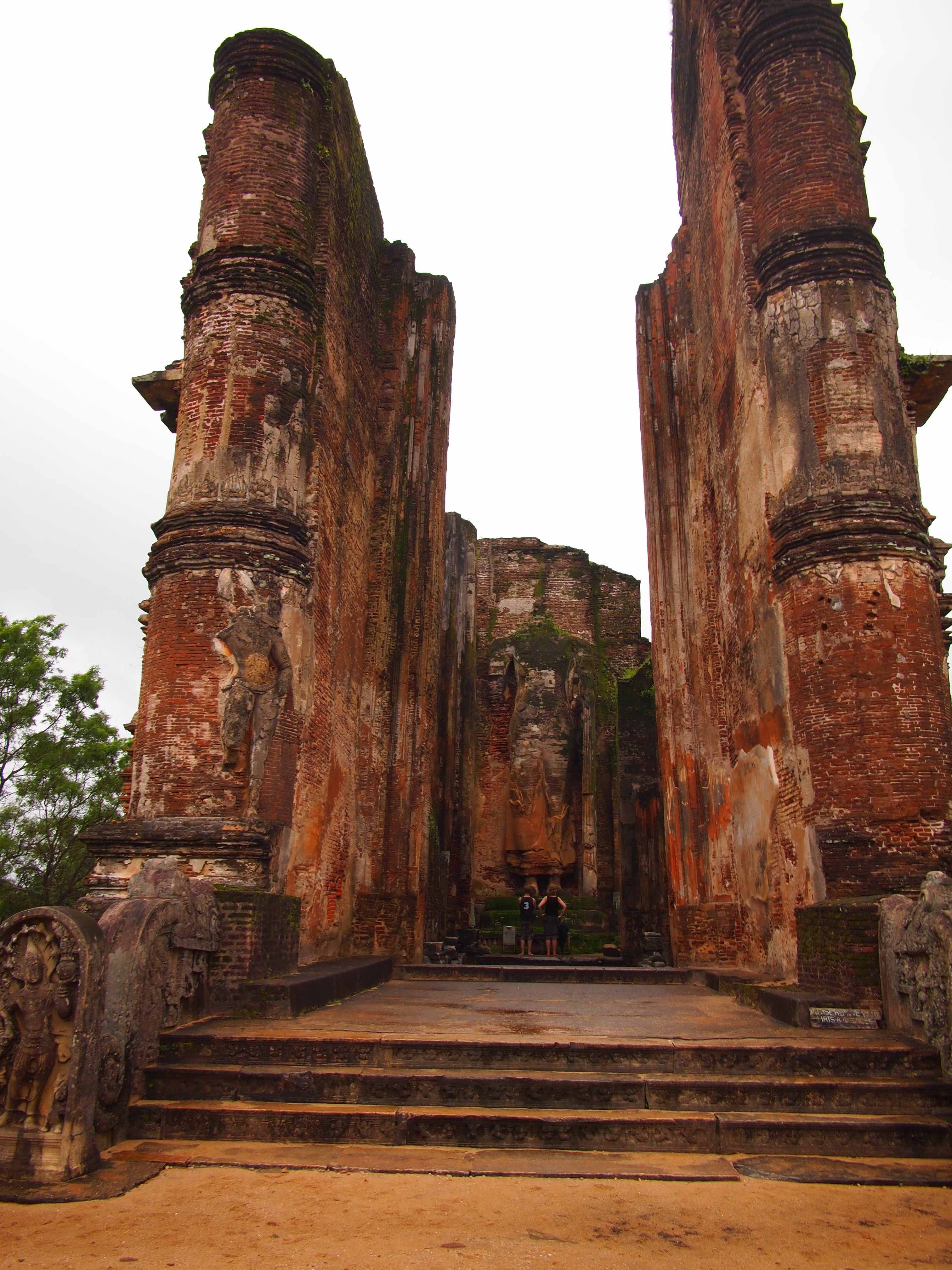
At about 60 metres high, the Buddha inside these walls is just magnificent.
Similarly the sacred quadrangle (that once held the sacred tooth relic of Buddha) also had some specatcular structures.
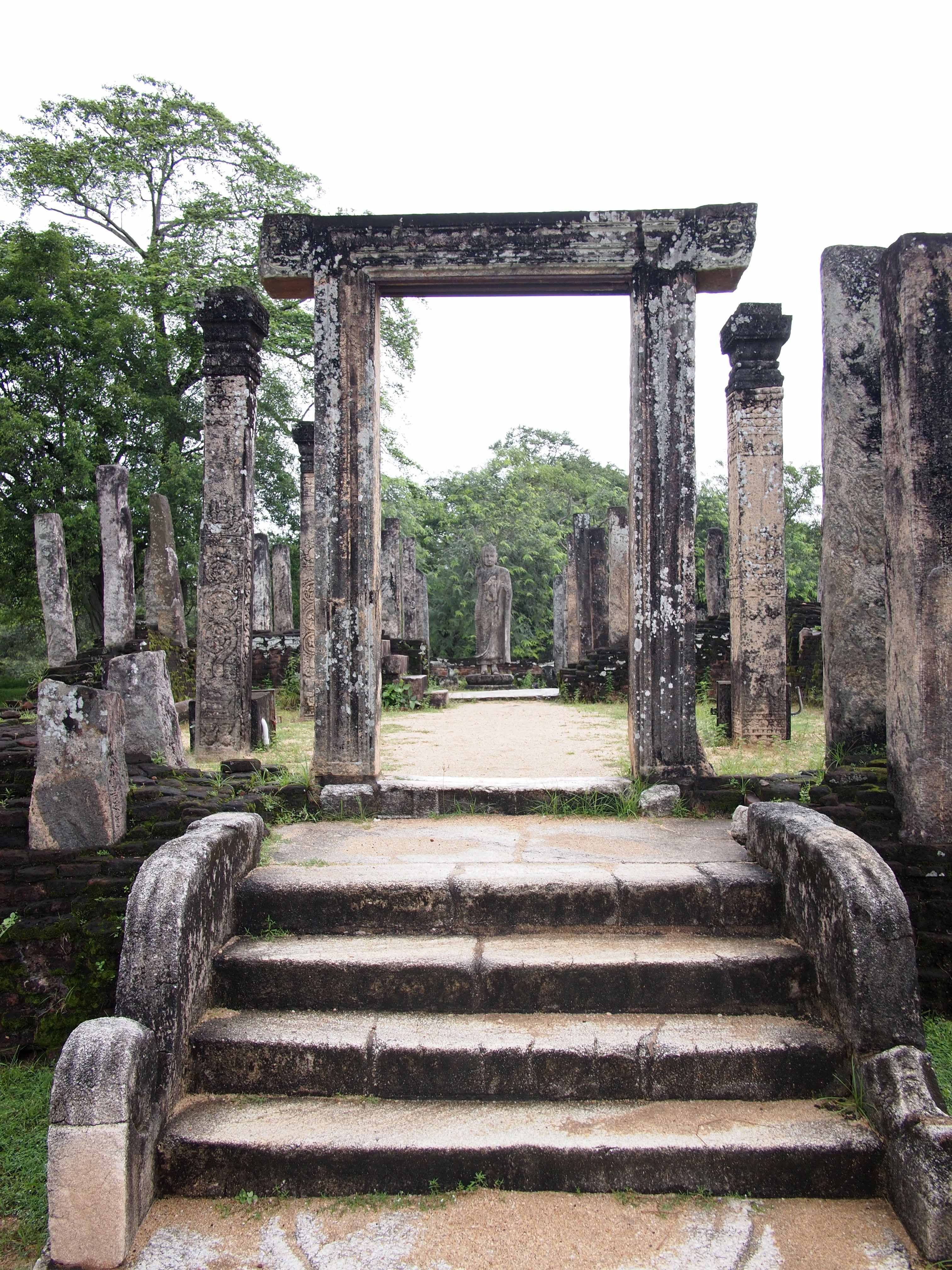
It never ceases to amaze me how these towns must have looked in their day. The craftsmanship must have been incredible, along with the attention to detail. Whilst it was raining the day we visited Polonnaruwa, we were still able to explore the old city well, and it remains one of the highlights of my trip to Sri Lanka.
The next day we planned to climb Sigiriya before heading onto Anuradhapura. Unfortunately the elements were not on our side and it looked rather grey and dim when we arrived at the Lion Rock. We decided to persist and started heading up. By the time we were halfway, what was a slight drizzle had turned into torrential rain. Whilst the view was stunning, this experience was not fun!
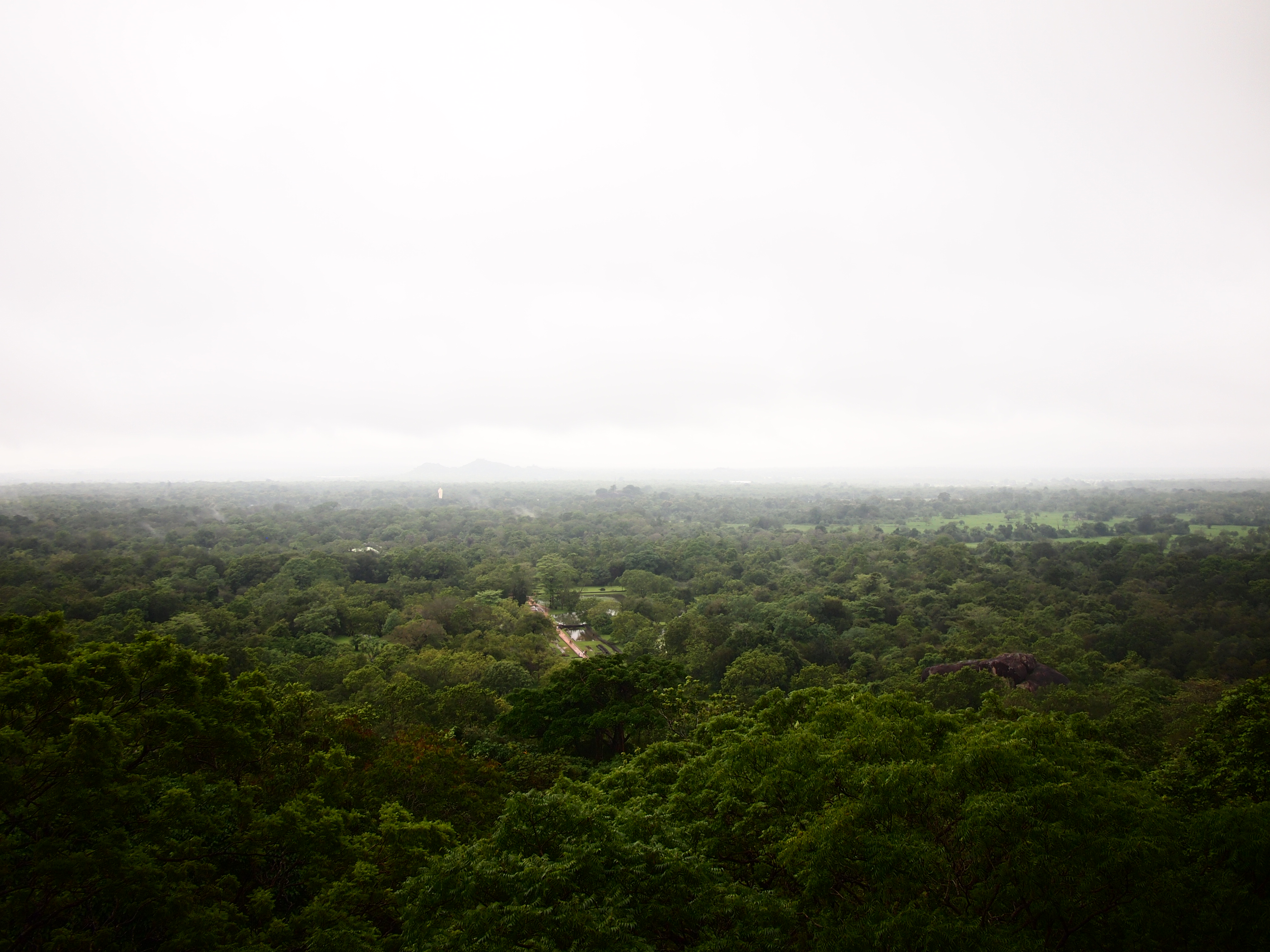
Sigiriya is famous for some spectacular frescoes
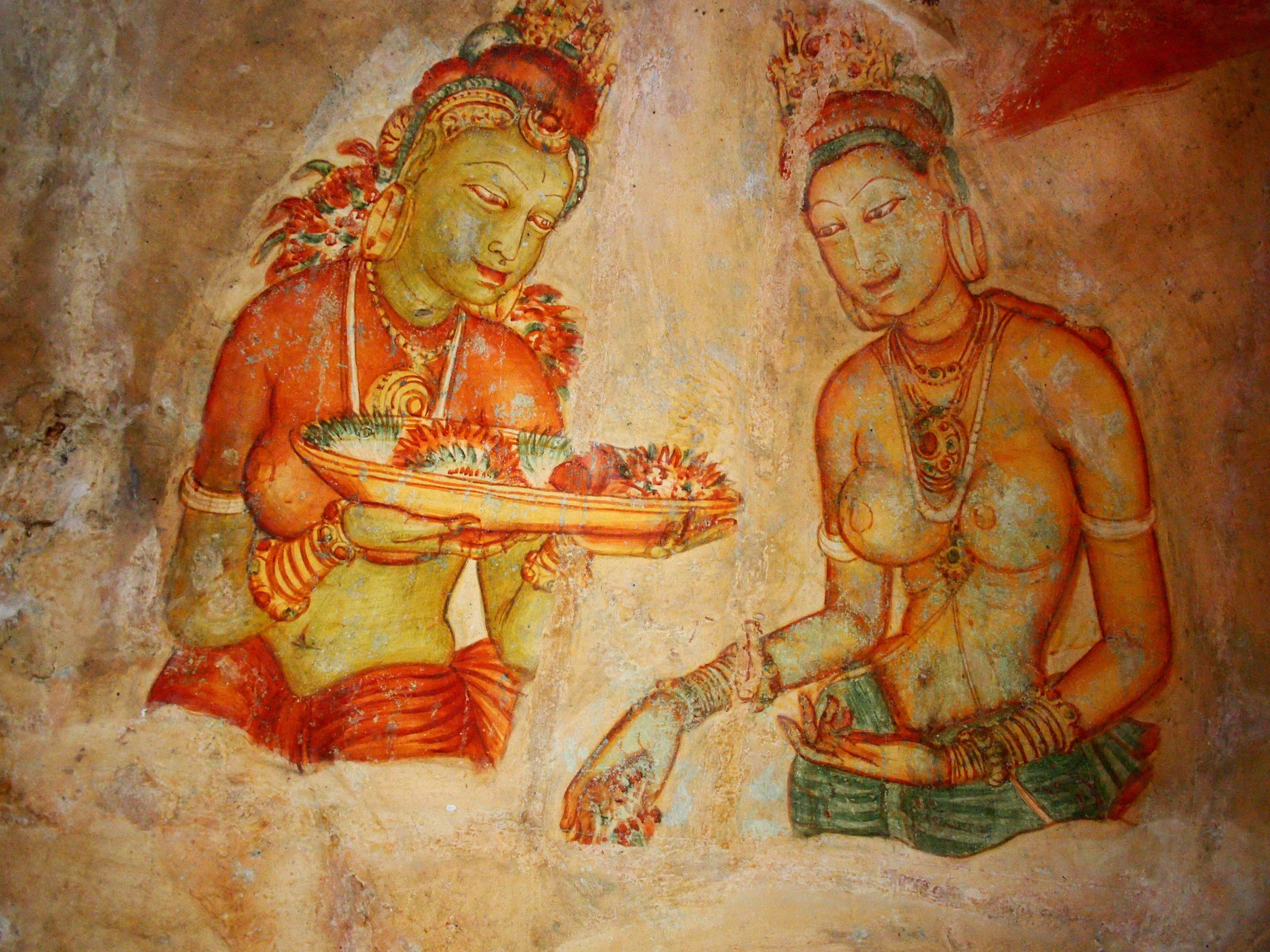
But most of all, it is famous for the huge carving of a lion that graced its summit. All that remains today are the lion’s paws, and whilst I did see them, it was just far too wet for me to take out my camera.
The climb back down was nothing short of terrifying for me. I find coming down steep steps challenging in the best weather, but under slippery conditions it was an experience I never plan on repeating.
After drying off and changing clothes, we headed onto the Anuradhapura, another ancient capital of Sri Lanka. My guidebook had described this town as the Angkor Wat of Sri Lanka, so I had very high expectations for it. Unfortunately, Anuradhapura didn’t live up to my imagination. I think after the highs of Dambulla and Polonnaruwa, I expected so much more, or perhaps by this stage I was little Buddha’d out. There were still some great temples to see like this iconic Stupa
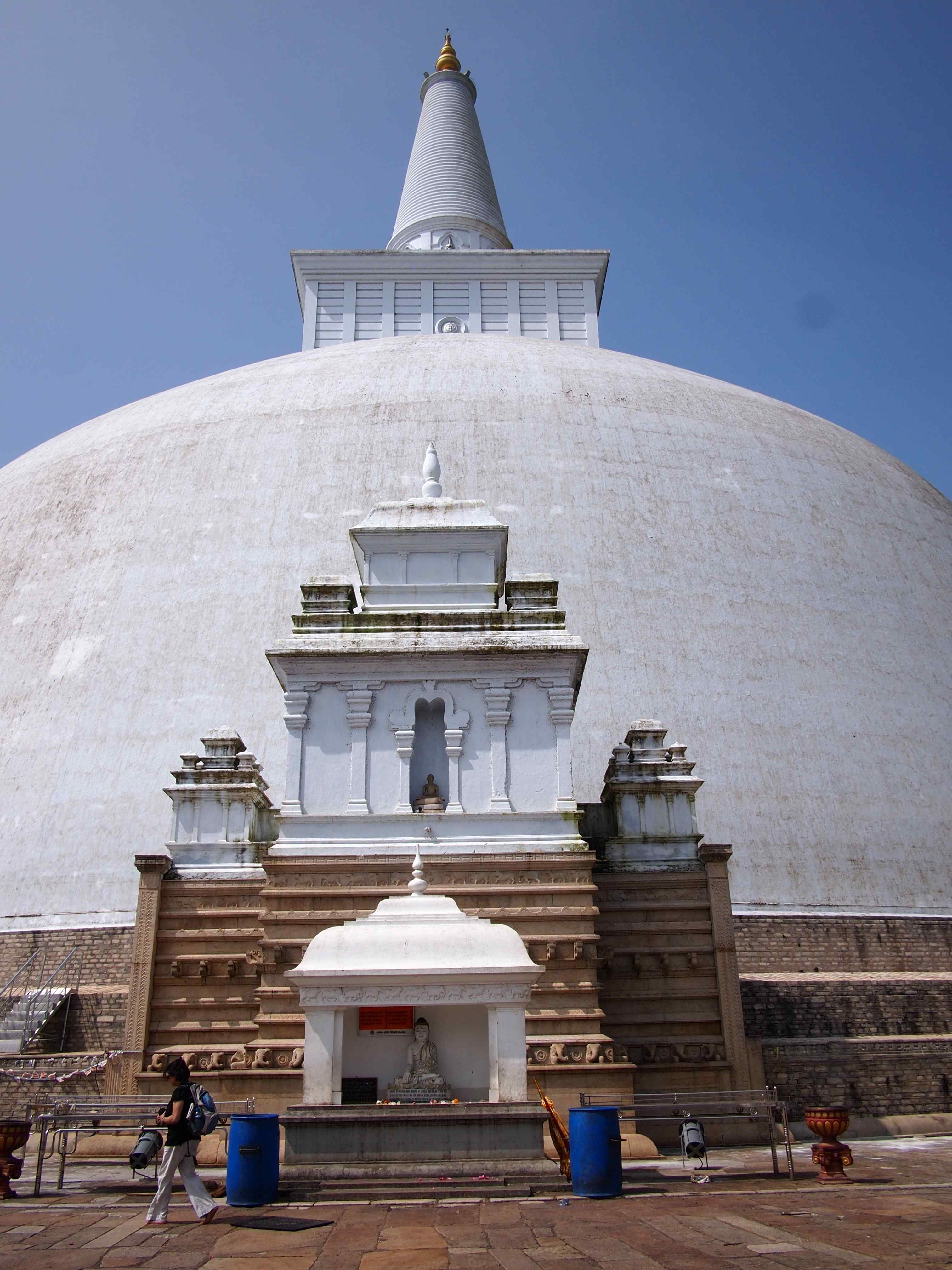
and this ancient rock temple. Look at the carvings of elephants in the rock.
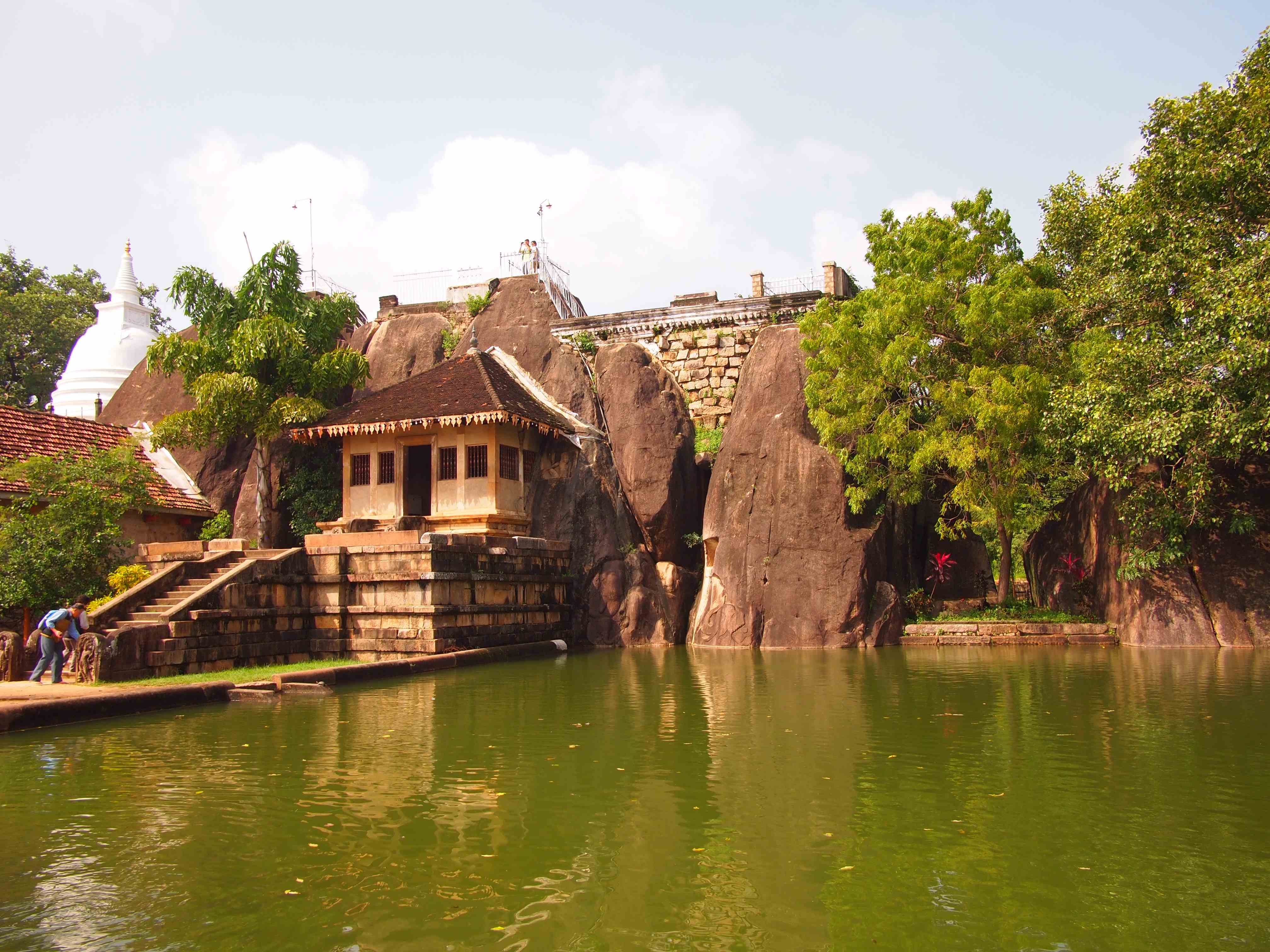
There were so many other towns that we didn’t visit in Sri Lanka that contain other pieces of its history. I am already planning when I can go back to see the rest of the Ancient Cities, hopefully soon.
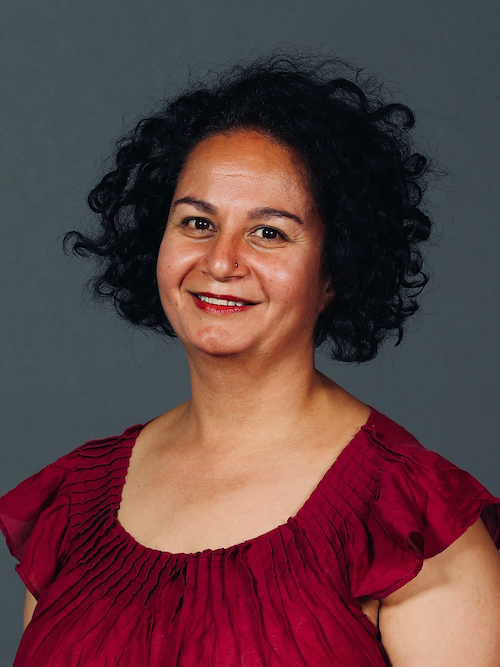
Leave a Reply